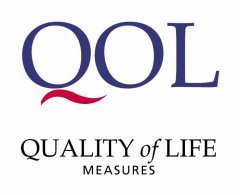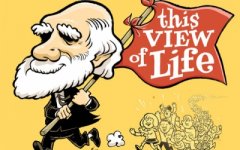 2010 Annual Report
2010 Annual Report
2011 Annual Report


The Evolution Institute connects the world of evolutionary science to the world of public policy formulation. For any given policy issue, we bring evolutionary experts together with other experts for a respectful and constructive dialogue, resulting in a new agenda for basic scientific research, policy formulation, and policy implementation. We have a rapidly expanding portfolio of projects, from early childhood education to the worldwide economy, and we welcome new partnerships with both individuals and organizations.
EDUCATION

Childhood education was our first focal topic, as described in the chapter of The Neighborhood Project titled "Learning from Mother Nature About Teaching Our Children". It also established the procedure for all of our focal topics, which begins by identifying the experts who are already employing an evolutionary perspective, bringing them together with experts who do not yet employ an evolutionary perspective, assessing the current state of knowledge, formulating an agenda of future research and policy implementation, and staying involved over the long term to realize the objectives. Both Jerry Lieberman and David Sloan Wilson are actively working with schools in our respective cities of Binghamton and Tampa. David's effort resulted in a program for at-risk high school students that works for a small fraction of the cost of Geoffrey Canada's Harlem Children's Zone, as reported in this scientific journal article and this commentary recently published in Education Week. This program is validated with the gold standard of assessment, the randomized control trial. Jerry is working with a school and community center run by a charismatic black pastor, illustrating the degree to which the Evolution Institute's approach can appeal even to devout religious believers. To summarize--evolution can provide a unifying theoretical framework for a practical topic such as education, no less than an academic topic such as religion. The practical benefits are inestimable.

ECONOMICS
Our focus on economics began with the financial collapse of 2008, as described in the chapter of The Neighborhood Project titled "Evonomics". It involves a partnership with the National Evolutionary Synthesis Center (NESCent), one of the National Science Foundation's largest evolution-related centers. The collaboration began with a conference in 2009 and continues with a series of four workshops that has been meeting over a period of two years. One product is an anthology that will be published by the University of Chicago Press titled Evonomics: Evolutionary Theory as a New Theoretical Foundation for Economics and Public Policy. Another product is a special issue of the highly respected Journal of Economic and Behavioral Organization (JEBO) that is in preparation. This review article that will begin the special issue shows how evolution can be presented as a general theoretical framework in a way that is respectful of other perspectives and fully cognizant of the entwined histories of evolution and economics as disciplines. This white paper submitted to NSF is a consensus document with 64 signatories, including luminaries such as E.O. Wilson and Nobel laureate Elinor Ostrom, illustrating the degree to which we are capturing the intellectual high ground for this subject.

RISKY ADOLESCENT BEHAVIOR
Bruce Ellis is a distinguished evolutionary developmental psychologist who participated in our education workshop. He was so impressed that he suggested organizing a workshop on risky adolescent behavior, which was held at the University of Arizona in 2009. One product of the workshop is a forthcoming special issue of the elite journal Developmental Psychology, which begins with the attached major review article titled "The Evolutionary Basis of Risky Adolescent Behavior: Implications for Science, Policy, and Practice". This is another example of how we are capturing the intellectual high ground, by involving the most distinguished scientists and publishing in the most distinguished academic journals. Capturing the intellectual high ground is crucial both for deriving policies that work and for establishing authority in public and political discourse. We are continuing to work with Bruce to fund a consortium of research groups conducting comprehensive longitudinal research on a model of human development that they call "the adaptive calibration model of stress responsivity".

QUALITY OF LIFE FROM AN EVOLUTIONARY PERSPECTIVE
Jerry has added his lifelong experience as a community organizer and introduced me to urban planners such as Ken Reardon, who heads the Urban Planning department at the University of Memphis. The "field site" approach is so appealing that some of my evolutionist colleagues are eager to get involved in cities such as Newcastle (UK), London (UK), and Singapore. A workshop that Jerry organized on Quality of Life from an evolutionary perspective, which was held in Memphis, engaged organizations such as the United Nations Research Institute on Social Development and the International Society for Quality of Life Studies. All of this has led to an ambitious plan to create a consortium of cities as field sites for measuring, studying, and improving the quality of life.

FAILED STATES AND NATION BUILDING

EVOLUTIONARY MISMATCH AND WHAT TO DO ABOUT IT

SOCIAL EVOLUTION FORUM
The Social Evolution Forum has three dimensions. First, it is a virtual seminar, that is, a website dedicated to promoting the presentation and discussion of the most novel and important questions in social evolution theory. Second, it has live podcasts and congresses/meetings dedicated specifically to the aims of the SEF. And third, although fundamentally a communication network, the SEF also provides the foundations for inter- and pluri-disciplinary – and, ultimately, trans-disciplinary – collaboration. This takes the form of adverts to international funding opportunities, and the posting or publication of interim reports for specialists and for the broader community interested in social evolution.
We believe that The Social Evolution Forum will have a considerable impact on interdisciplinary research in social evolution theory, and will contribute to informing and educating the public about pressing issues of today’s society.

EVOLUTION: THIS VIEW OF LIFE
Our newest venture is EVOLUTION:THIS VIEW OF LIFE, an online general interest magazine in which all of the content is from an evolutionary perspective. A pilot version is already active and a redesigned version will be launched and publicized on Darwin’s Birthday (Feb 12) 2012. The mission of the magazine is to do for the general public what EvoS does for higher education, the Evolution Institute does for public policy, and the Binghamton Neighborhood Project does for community-based research. It is the creation David Sloan Wilson's graduate students named Robert Kadar, who serves as managing editor. David serves as Editor-in-Chief and the magazine has a staff of eleven section editors, all of whom are professional evolutionists. That gives the magazine more scientific authority than any other popular science outlet, including Scientific American and Discovery. EVOLUTION:THIS VIEW OF LIFE has tremendous potential for changing the way that the public thinks about evolution.
MESSAGE FROM THE PRESIDENT:
The mission of the Evolution Institute is to provide a conduit from the world of evolutionary science to the world of public policy formulation. Just as any human-related topic can be studied academically from an evolutionary perspective, virtually any important policy issue can be approached from an evolutionary perspective. This seemed like a bold conjecture when Jerry and I started the Evolution Institute in 2006, but by now I am convinced that evolutionary science can function as a practical toolkit for improving the quality of life, in addition to the academic understanding that it provides. My conviction is based on the focal topics already addressed.
With respect to infrastructure, our strategy for developing the Evolution Institute has been to focus first on selected topic areas as a proof of concept for the organization as a whole. Having accomplished that goal, we are now in the process of raising funds for a small staff and general operating budget. It’s amazing what we’ve accomplished on our own, like an incipient ant colony in which the founding queens do all the work, but I look forward to reaching the stage in which there are workers providing the benefits of division of labor!
Armed with guidelines, we will evaluate case studies with a high degree of practical relevance for both humans and non-human species. Examples include a) immune system dysfunctions; b) human 4 diet; c) human behavioral decisions; d) learning and cultural evolution, which are open-ended processes that like the immune system can become “confused” in modern environments; e) “ecological traps” that cause nonhuman species to make maladaptive choices; f) nonhuman species in urban and suburban environments. For each case study, we will outline a research agenda for rigorously establishing the phenomenon of mismatch and devising environmental interventions for achieving practical solutions. Our focus on “what to do about it” will give this working group immediate practical relevance in addition to its basic scientific import.
Why people cooperate in constructing larger social units, and its reverse, social disintegration,have been studied intensively from the perspective of cultural and social evolution. So far, however, the insights coming from this research have not been integrated into our understanding of how to deal with failed states or succeed in nation-building. To jump-start such a dialogue between scientists and policy makers, the Evolution Institute organized a workshop at Stanford University on December 3–5, 2011. This workshop brought together academic experts from such diverse fields as evolutionary, social/political, and historical sciences with diplomats and policy makers. The workshop focused on a particular region where ideas on how to achieve for peace are urgently needed, Afghanistan and Pakistan.
David Sloan Wilson
 Magazine Posts
Magazine Posts Table of Contents
Table of Contents